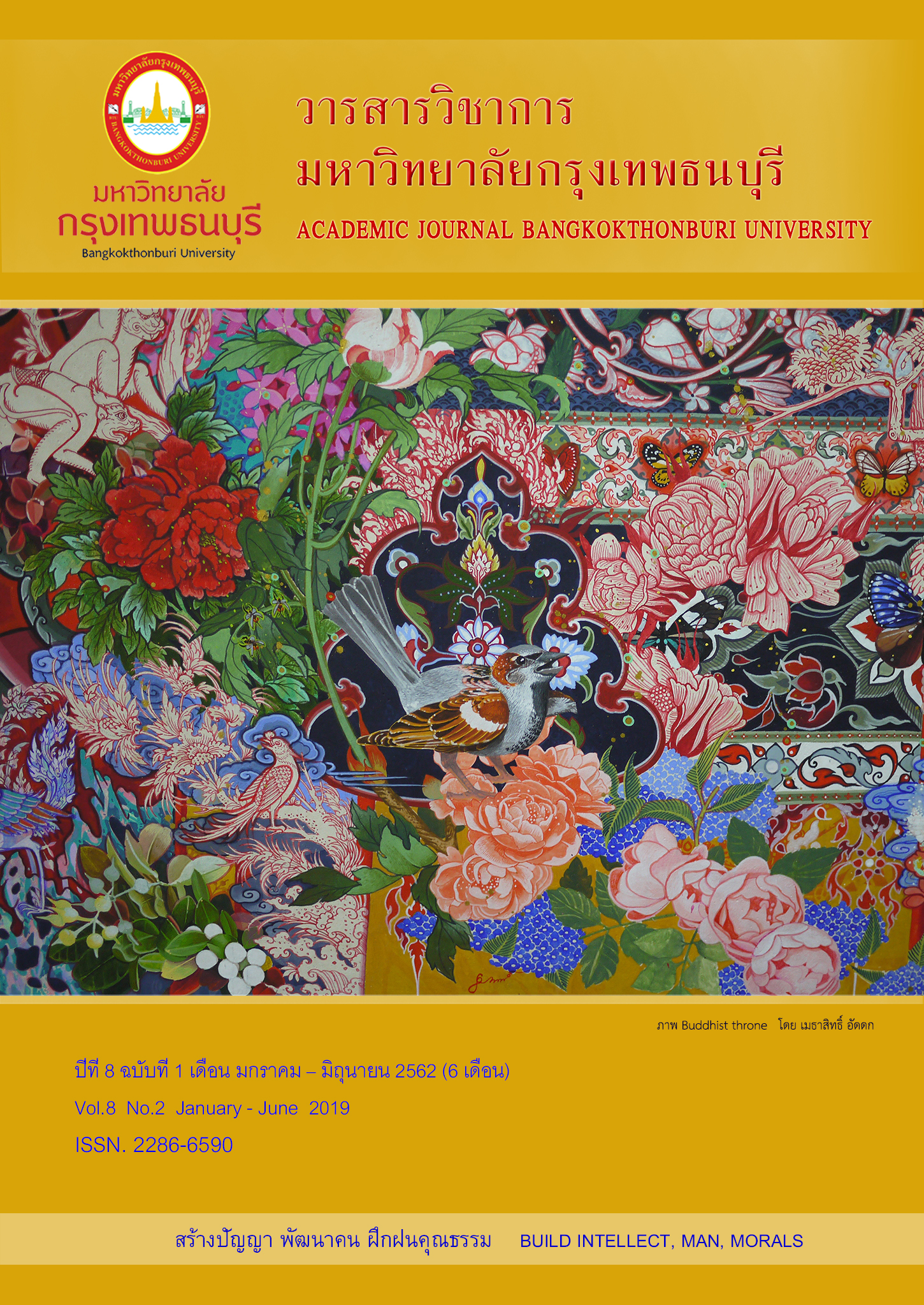Decision Making Procedure in Accepting Audit Engagement of the Certified Public Accountant in Thailand
Main Article Content
Abstract
Abstract
The objectives of the research were to investigate the decision making process in accepting audit engagement of the accounting auditor individuals in Thailand, as well as to explore the factors influencing their consideration before accepting audit engagement. The tool for data collection was In-Depth Interview. Key informants included 12 auditors. It was a quantitative research conducted as a case study. The findings were discovered as follows: (1) through the perspectives of auditors in Thailand, the unique attributes of the procedure of decision making from each category of the auditors were defined, as well as some difference among them was also underlined. There were 3 sources for accepting the audit engagement, including accounting firms, audit firms, and each individual. (2) Regarding decision making procedure in accepting the audit engagement, it was found that the determination and the performance of the auditors and other accounting professions were based on transparency, independency, honesty, prejudice and fairness. Whether to continue the audit engagement next time, the auditors considered from the impression of the audit engagement from previous times, the audit quality adhering with the conventional standards, free-risk taking, as well as reasonable compensation. (3) The factors influencing the decision making were varied from each category. It was found that the three types of auditors considered the risk before deciding to take the audit to reduce the audit from the professional council and word load factors. For category 1: engagement accepted from the source of accounting firms, the factor was the sizes of the firms. For category 2: engagement accepted from the source of audit firms, the factor which was personal readiness. For category 3: engagement accepted from each individual auditor, the factor was business types. The theoretical concepts of the working performance of those three categories were consistent with both descriptive decision making theories, and systematic decision making theories. Therefore, it could be implied that the influencing factors found in the study tended to help predict the pricing determination and the willingness to accept audit engagement of the auditors.
Article Details
References
Chanchai Tangruenrat (2008). Audit risk. Journal of Accounting Profession. Faculty of Commerce and Accountancy, Thammasat University.
Goodwin,P. and Wright, G. (1998). Decision Analysis for Management Judgement. Chichester, England: John Wiley & Sons Ltd.
Hastie, R. and Dawes, R. (2001). Rational choice in an uncertain world: The psychology of Judgement and decision making. Thousand Oaks, CA:Sage Publications.
Huss, H. and Jacobs, F. (1991). Risk containment: Exploring auditor decisions in the engagement process. Auditing: A Journal of Practice & Theory Fall: 16-32.
Jean, C. (2004). Earnings Manipulation Risk, Corporate Governance Risk, and Auditors' Planning and Pricing Decisions. The Accounting Review Vol. 79, No. 2 pp. 277-304
Johnstone, B. (1997). Risk, Strategy, and the Client Acceptance Decision: A Causal Model. (Doctoral Dissertations). The University of Connecticut. (AAI9737412)
Kamyarat Rodruang, Piyawan Junrat and Chatmongkon Wongrathanandha (2016). Factors Influencing Auditors’s Descison on Client Acceptance. Department of ACCOUNTING in Kasetsart University
Nipan Henchokchaichana and Sillapaporn Srijunpetch. (2016). Auditing. 1st edition. Bangkok: T.P. N. Place Limited Partnership
Volker, L. and Paul, N. (2010). Auditor Liability and Client Acceptance Decisions. The Accounting Review:January 2010, Vol. 85, No. 1, pp. 261-285.
Wirode Laohathaweechoke (2004). Factors Impact on Auditor's Client Acceptance Decisions and Client's Determining Audit Firm. Chulalongkorn University. Bangkok (Thailand). Graduate School.


